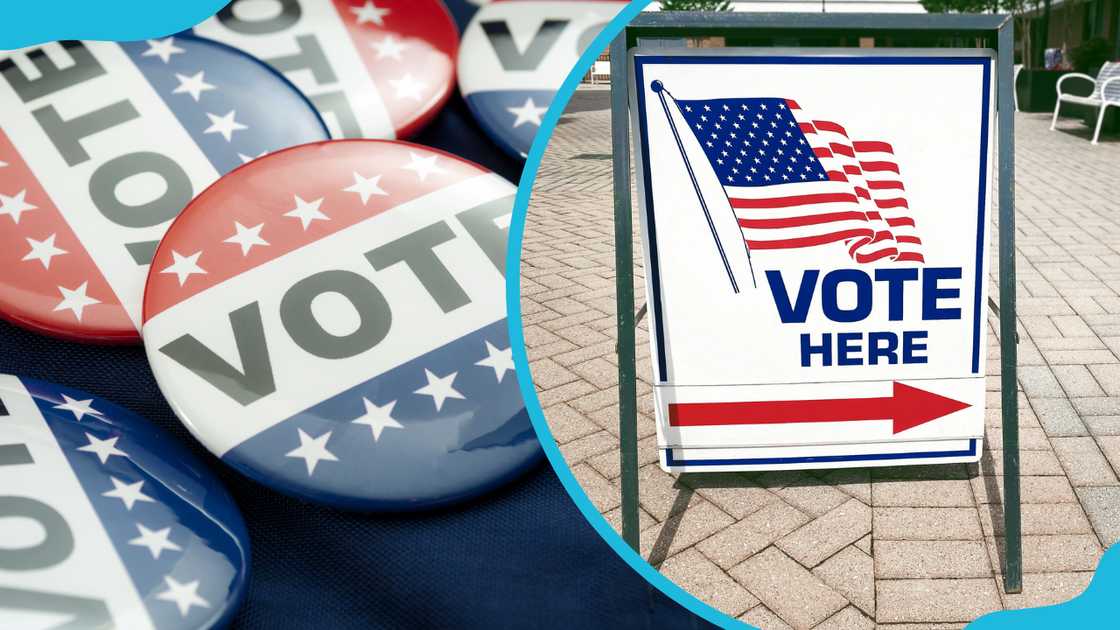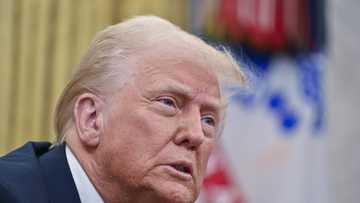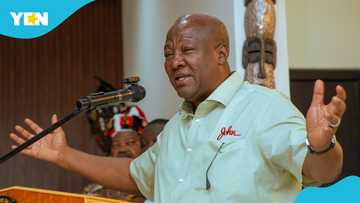What is a primary election? Know its purpose and importance in America
The general elections in the USA are among the most followed worldwide. They determine the country's leadership, including the president, members of Congress, governors, and various local political officials. However, before the general elections, major political parties hold a crucial contest known as the primary. But what is a primary election, and what does it entail?

Source: Getty Images
TABLE OF CONTENTS
The United States presidential election cycle is a complex and highly organised process that spans several years. It starts with potential candidates announcing their campaigns, followed by primary elections and caucuses in each state. But what is the purpose and importance of the primary election?
What is a primary election?
In the United States, the government holds the primary election to select candidates for public office. Primaries may be closed (partisan) or open (non-partisan). Partisan primaries allow only declared party members to vote. Non-partisan primaries enable all voters to choose which party's primary they wish to vote in without declaring any party affiliation.
Types of primary elections
The laws governing primary elections vary from state to state and can even vary within states by locality and political party. For example, only registered party members are allowed to vote in closed primaries.
In contrast, registered party members and unaffiliated voters can vote in semi-closed primaries, and all voters can vote in open primaries.
There are many versions of primary elections, but common ones include—the closed, open, semi-closed, semi-open, top-two primary, and blanket primary. However, the primaries can change depending on the type of election (presidential or congressional). According to Findlaw, here are the 4 types of primary elections common in the US:
Closed primary
In the closed primaries, only registered party members can vote to choose the party's candidate. For example, if you want to vote for a Republican, you must affiliate with the Republican party. To vote for a Democrat, you must register with the Democratic party. The following states have closed primaries for at least one political party:
- Connecticut
- Delaware
- Florida
- Kentucky
- Maryland
- Nevada
- Oklahoma (closed for Republican and Libertarian parties)
- Oregon
- Pennsylvania
- South Dakota (closed for Republican, Libertarian, and Constitution parties)
- Utah (closed for Republican Party)
- Washington, DC (not a state)
- Wyoming
Open primary
An open primary election permits registered voters to pick candidates from any political party. It also allows eligible voters to vote even if they aren't registered with that party or change their affiliation. The following states allow open primaries for at least one political party:
- Alabama
- Arkansas
- Georgia
- Hawaii
- Illinois
- Indiana
- Iowa
- Michigan
- Minnesota
- Mississippi
- Missouri
- Montana
- North Dakota
- Ohio
- South Carolina
- Tennessee
- Texas
- Vermont
- Virginia
- Wisconsin
Semi-closed primary

Source: Getty Images
The semi-closed primary or mixed primary is the middle ground. Here, independent or unaffiliated voters can participate in the primary election of any political party they choose. Meanwhile, voters with political affiliation can only participate in their political party's primary election. The following states have semi-closed primaries for at least one political party.
- Arizona
- Colorado
- Idaho
- Kansas
- Massachusetts
- New Hampshire
- New Jersey
- New York (for Reform Party)
- North Carolina
- Oklahoma (semi-closed for the Democratic Party)
- Rhode Island
- South Dakota (semi-closed for the Democratic Party)
- Utah (semi-closed for the Democratic Party)
- West Virginia
Top-Two primary
The Top-Two primary election is a unique system in which all candidates compete on the same ballot regardless of party affiliation. Voters can select any candidate, and the top two candidates who receive the most votes advance to the general election. The following states have the Top-Two primaries for at least one political party or specific elections.
- California
- Washington
- Nebraska
- Louisiana
What is the main purpose of a primary election?
The primary elections are held to select nominees for various public offices, including the presidency, congressional seats, and local government positions.
What is the purpose of presidential primaries?
The presidential primary is a way for voters to help the major political parties choose presidential nominees.
When is primary election day?
Primary election dates vary by state and year. Typically, the primary season begins several months before the general election, allowing ample time for candidates to campaign and for voters to make informed decisions. For instance, in 2024, the US primary elections began on March 5 and will end on August 27.
What is a US delegate?

Source: Getty Images
What are delegates? Delegates are individuals chosen to support a particular candidate at the national convention, where the party's nominee for president is officially selected.
In the US Congress, voters elect delegates to represent the interests of a United States territory and its citizens or nationals. In addition, certain US states have House of Delegates as governors or another parliamentary assembly with members as elected delegates.
What are college votes in America?
College votes refer to votes cast by members of the Electoral College, a body of electors established by the US Constitution. The body is responsible for the formal election of the President and Vice President.
The number of electors from each state is roughly in line with the size of its population. Each state gets as many electors as it has lawmakers in the US Congress. There are 538 selectors, and a majority of 270 electoral voters is required to win the presidency.
What is the American Caucus?
Caucuses are local meetings run by political parties at the county, district, or precinct level. In the United States, a political party or subgroup associates may meet to coordinate members' actions, choose group policy, or nominate candidates for various offices.
Hopefully, you now know the answer to "What is a primary election?" It is a preliminary contest political parties use to select and nominate candidates for the upcoming general election. Primaries can be open, allowing any registered voter to participate, or closed, restricted to registered party members only.
Yen.com.gh published an informative article about the weirdest laws in the US. The US has some of the most absurd laws you have ever heard.
Laws are rules established and enforced by social or governmental institutions to govern behaviour. But while these laws make sense, some, like those in the USA, are absurd. But which are these strange laws from the USA? Read more about them in the article.
Source: YEN.com.gh





